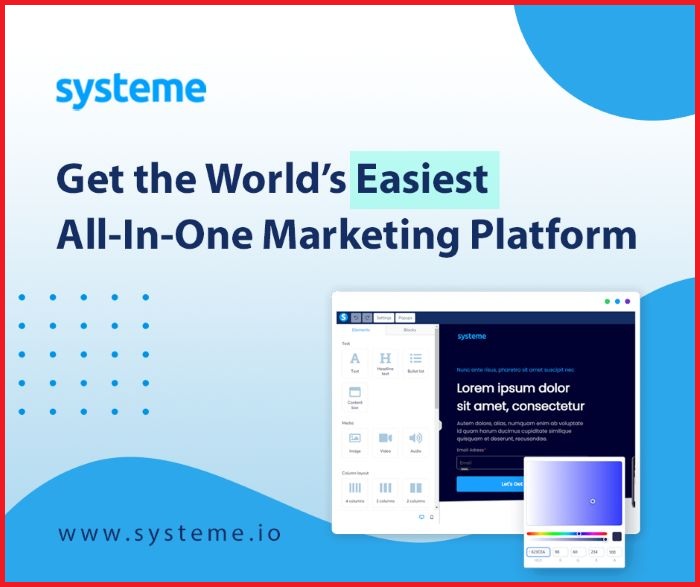In the competitive world of real estate, understanding sales funnels can transform your business. A well-structured sales funnel guides potential clients from their first contact to making a purchase. Sales funnels are crucial for converting leads into loyal customers, ensuring that you maximize opportunities for closing deals. By implementing this strategy, you can improve your ability to connect with clients, build long-lasting relationships, and steadily grow your real estate business.

Effective digital marketing plays a vital role in creating successful sales funnels. From using SEO to attract visitors to your site, to engaging on social media, every step matters.
Employing these digital tools ensures that your potential clients have a seamless journey through your funnel where you can nurture and inform them at each stage. This approach helps in building trust and increasing the likelihood of conversions.
Exploring advanced funnels and innovative techniques is key to staying ahead. By continuously measuring your success and ROI, you can refine your strategies and adapt to new trends. This proactive approach not only helps in closing more deals but also in maintaining customer satisfaction and securing repeat business.
Key Takeaways
- Sales funnels are essential for converting leads in real estate.
- Digital marketing enhances the effectiveness of sales funnels.
- Measuring success helps refine and innovate your strategies.
Understanding Sales Funnels in Real Estate
Sales funnels are essential tools in the real estate industry. They help convert potential leads into successful deals by guiding them through a series of stages designed to build a relationship and demonstrate value.
By effectively utilizing a sales funnel, you can streamline your approach and increase your success rate.
Defining Sales Funnel and its Importance
A sales funnel in real estate is a strategic process that guides potential clients from initial interest to closing a deal. This funnel shapes the journey of a prospect by nurturing their interest and addressing their needs at each stage. Its importance lies in its ability to systematically optimize lead conversion rates.
The structure of a sales funnel helps you focus on high-quality leads, ensuring your time and resources are spent effectively. It allows for targeted marketing, better client relations, and increased sales efficiency. In real estate, where competition is fierce, understanding and implementing a strong sales funnel can be a significant advantage.
Key Stages of a Sales Funnel
The key stages of a real estate sales funnel include:
-
Awareness: Potential clients become aware of your services through marketing efforts like online ads, open houses, or informational content.
-
Interest: Capture their interest by providing valuable information that aligns with their needs and desires, such as property tours or market insights.
-
Decision: Engage prospects with personalized communication and offers that encourage them to choose your services over competitors.
-
Action: Convert prospects into clients by closing deals through professional negotiation and service.
By mastering each stage, you can guide prospects effectively through your real estate sales funnel, enhancing your overall business performance.
Laying the Foundations for Realtors
To be a successful real estate agent, you need strong foundations. This means crafting a value proposition that sets you apart and building a brand that clients can trust.
Developing a Strong Value Proposition
Crafting a compelling value proposition is essential to distinguish yourself from other real estate agents. Your value proposition should clearly communicate what makes you unique and why clients should choose you over others.
Identify the specific services or qualities you offer that add value, such as local market expertise, exceptional customer service, or access to exclusive listings. Highlight benefits that directly address your clients’ needs and pain points. Keep your message clear, concise, and relevant to your target audience.
Using testimonials or case studies from satisfied clients can strengthen your value proposition. Incorporating these elements into your marketing and communications will attract potential clients and reinforce your professional credibility.
Establishing Brand Awareness and Credibility
Building brand awareness is vital for attracting clients and maintaining credibility as a real estate agent. Start by creating a consistent brand image across all platforms, including your website, social media profiles, and marketing materials.
Engage in community activities to boost your visibility and foster trust within your local market. Networking events, sponsorships, and local partnerships can enhance your brand presence and credibility.
Make use of digital marketing strategies, such as targeted content marketing, to reach a wider audience. Regularly share valuable insights and updates across various channels to position yourself as a knowledgeable authority in the industry. Consistency and authenticity in your messaging are crucial to gaining trust and recognition.
The Digital Marketing Spectrum
In real estate, it’s crucial to use various digital marketing tools to boost visibility and engagement with potential clients. SEO, social media, and email marketing are vital parts of this effort. By effectively using these tools, realtors can strengthen their online presence and develop efficient marketing strategies.
Leveraging SEO for Real Estate Visibility
Search Engine Optimization (SEO) is a critical tool to increase your real estate business’s online visibility. By using carefully chosen keywords, your content can rank higher on search engine results pages.
To successfully apply SEO, you should focus on relevant phrases like “homes for sale in [your area]” or “best real estate agents.”
It’s important to regularly update your website with fresh content. Adding blog posts about local market trends or real estate tips can help. This practice not only educates readers but also signals search engines that your site is active and valuable. Optimizing images by using alt text and proper file names also enhances your site’s SEO performance.
Utilizing Social Media for Engagement
Social media platforms are essential for engaging potential buyers and sellers. Platforms like Facebook, Instagram, and Twitter allow you to share listings and open house events.
Posting stories and reels can provide a glimpse into homes and local neighborhoods, enticing followers to learn more about your listings.
Social media advertising helps target specific demographics, increasing the chances of reaching the right audience. Use engaging content such as video tours, client testimonials, and renovation tips to keep your audience interested. Interacting with comments and messages builds trust and establishes a more personal connection with your followers.
Email Marketing Strategies and Best Practices
Email marketing remains one of the most effective ways to nurture leads and maintain client relationships.
Crafting personalized emails that focus on client interests, such as new listings or market updates, can improve engagement rates.
Segment your email list to tailor content for different audience groups. For example, first-time buyers might appreciate tips and guides, while investors could benefit from market analysis reports.
Always ensure your emails have a clear call to action, guiding readers to schedule a viewing or sign up for a newsletter.
To maximize success, regularly analyze email performance metrics like open rates and click-through rates. By understanding these metrics, you can refine your strategies and enhance future campaigns.
Lead Generation Tactics
In the real estate industry, effective lead generation is vital for attracting and converting potential clients. By utilizing tools such as landing pages, lead magnets, and targeted advertising, you can enhance your ability to capture and nurture leads through the sales funnel.
Creating Effective Landing Pages and Lead Capture Forms
Landing pages are a cornerstone of building a successful sales funnel. They serve as a focused entry point for potential clients.
To maximize conversion rates, your landing pages should be clear and engaging. Use simple headlines and concise body text.
Incorporate lead capture forms to collect visitor information. Place forms prominently on the page. Ask for only essential details like name, email, and phone number to maintain user interest. Ensure that your pages are mobile-friendly, as many users will access them from smartphones. This optimization helps increase the likelihood of generating leads and moving them further along the funnel.
The Role of Lead Magnets in Converting Visitors
Lead magnets are valuable incentives given in exchange for contact information. They are crucial in encouraging visitors to share their details.
Common examples include eBooks, market reports, or video tutorials. Offering a compelling lead magnet tailored to your audience’s needs can significantly boost your lead generation efforts.
For the real estate market, consider offering guides on home buying or neighborhood statistics. This relevance ensures you attract people genuinely interested in real estate.
Highlight the benefits of your lead magnets clearly on your landing pages to increase their attractiveness and conversion potential. Tailored lead magnets not only engage prospective clients but also instill trust and credibility in your real estate expertise.
Advertising on Google Ads and Facebook Ads
Advertising platforms like Google Ads and Facebook Ads are powerful tools for reaching targeted audiences. These platforms allow you to specify demographics, interests, and behaviors that align with your ideal client profile.
Using targeted ads increases the efficiency of your marketing budget.
For Google Ads, focus on capturing intent-based traffic. Use specific keywords related to real estate in your area.
Meanwhile, Facebook Ads enable you to create visual and interactive content that can engage users. Leverage audience insights to refine your targeting. By aligning ad content with user interests and behaviors, you can effectively drive traffic to your funnel, generating quality leads.
Nurturing Potential Buyers
Building strong connections with potential buyers is essential in real estate. This involves using personalized communication and effective customer relationship management to guide them through the buying process.
Effective Communication and Personalized Messaging
To engage potential buyers, focus on tailored interactions. Use personalized communication to address their specific needs and preferences.
This might include sending email sequences that provide relevant information about properties they’re interested in.
Regularly update them on new listings that match their criteria. Use tools like surveys or questionnaires to understand their desires better.
Responding promptly to inquiries builds trust and shows that you value their interests. This approach not only keeps buyers engaged but also makes them more likely to choose you as their agent.
The Significance of Customer Relationship Management
For seamless lead nurturing, effective Customer Relationship Management (CRM) systems are vital. These systems allow you to track interactions and manage potential buyers efficiently.
By organizing information on buyer preferences, CRM tools help you tailor your outreach efforts.
Segment your audience based on criteria such as budget, location, and desired property type. This segmentation enables more targeted communication strategies, ensuring buyers receive the right information at the right time.
Also, CRM systems can automate tasks like follow-up emails, helping you stay in touch without missing opportunities. This organized approach enhances your ability to meet buyer expectations and close more deals.
Conversion Strategies for Realtors
Improving conversion rates is key to success in real estate. Focus on creating persuasive calls-to-action, testing what works best for your campaigns, and leveraging testimonials to build trust with prospective clients.
Crafting Persuasive Calls-to-Action
A strong call-to-action (CTA) is essential for converting leads. It should be clear, concise, and tell the client exactly what to do next.
Use action-oriented language to increase engagement. Phrases like “Schedule a Viewing” or “Contact Us Now” can drive action.
Position your CTA prominently on your website and marketing materials. Bold colors and large text can make it stand out.
Testing different CTAs can help you find what resonates best with your audience. Analyze which phrases and designs generate the most clicks and conversions.
Optimizing Conversion Rate Through A/B Testing
A/B testing allows you to compare two versions of a marketing element to see which performs better. Begin by selecting a single element to test, such as a headline or image.
Create two variations and present them to different segments of your audience.
Measure the results and focus on critical metrics like conversion rate. This data-driven approach can guide you in refining your content for better engagement.
Continuous testing ensures you can adapt to changing client preferences and market conditions, optimizing your strategy over time.
Utilizing Client Testimonials and Case Studies
Client testimonials and case studies can greatly enhance your credibility. Prospective clients are more likely to convert when they see real-life examples of your success.
Gather testimonials by reaching out to satisfied clients and asking them about their experiences.
Include these testimonials prominently on your website and marketing materials. Case studies offer detailed narratives about your expertise, showing how you solved specific problems. These tools build trust and confidence, showing potential clients that you deliver results.
Closing Deals and Post-Sale Strategies
Successfully closing deals is just the beginning. Keeping clients engaged afterward can lead to more referrals, repeat business, and chances to upsell with additional services or properties.
Maximizing Referrals and Repeat Business
To get referrals and repeat business, make sure you stay in touch with your clients after closing. You can do this through personalized follow-up emails or phone calls that make your clients feel valued and appreciated.
A Post-Closing Follow-up Funnel can help automate some of these tasks, ensuring regular and meaningful communication.
Think about sending satisfaction surveys to gather feedback and show your commitment to customer service. By addressing any concerns they have, you can improve your services and build trust. A happy client is more likely to recommend you to others and come back when they need real estate help again.
Engage with clients through newsletters that update them on market trends, new offerings, or community events. This keeps your services top of mind and shows that you care about their ongoing relationship, not just the sale.
Upselling with Additional Services or Properties
Upselling is about offering clients more value, which can include additional services like home staging or property management. Knowing your clients’ needs can help tailor your recommendations and provide suitable options.
For instance, if a client buys a home for an investment, suggesting property management services can be a win-win. Or, if they’ve purchased a smaller property, you can introduce larger properties that better match their future needs.
Advertising upcoming listings and exclusive offers can pique their interest for potential upgrades or investments. Utilizing sales funnel software can help manage and keep track of these interactions effectively, ensuring a smoother upselling process.
Exploring Advanced Funnels for Realtors
As a realtor looking to enhance your sales strategy, advanced sales funnels can be a game changer. These funnels help in targeting specific market segments and optimizing lead conversion. Understanding the nuances of specialized and custom funnels can lead to better client relationships and higher closing rates.
Differentiating Various Specialized Funnels
Specialized funnels are tools that cater to specific stages of a buyer’s journey or target distinct client needs. Webinar funnels are perfect for educating potential buyers about the market trends or specific properties, engaging them with interactive sessions.
The video sales letter funnel uses engaging video content to convert leads by providing detailed property tours and insights that might not be possible with static images or text alone.
Survey funnels gather data-driven insights, allowing you to customize your approach based on client preferences. Similarly, the application funnel requires clients to fill out detailed information, qualifying them before you invest time on showings.
Lead magnet funnels use content like eBooks or market reports to attract and capture leads looking for valuable information. Each specialized funnel has a specific function, which is crucial for effective real estate marketing.
Custom Funnels for the Real Estate Niche
Personalized approaches are vital in real estate given the diverse clientele and property requirements. A regular deal funnel focuses on converting those interested in negotiating deals frequently. In contrast, the membership funnel can cater to those seeking continued investment opportunities or market updates from you.
A reverse squeeze page funnel captures leads by offering value before collecting contact information, which can ease wary potential buyers into engaging with you. The 2-step tripwire funnel offers a low-cost property-related product upfront, enticing buyers to make larger commitments over time.
Utilizing these custom approaches, like the launch funnel for new property announcements or the summit funnel for online events showcasing multiple listings, can enhance your reach and effectiveness in closing deals. Employing platforms such as ClickFunnels can also streamline the process by providing templates and automation tailored to your needs.
Measuring Success and ROI
Understanding how well your sales funnel is performing is critical to maximizing your return on investment (ROI) in real estate. By evaluating the effectiveness of each stage and adjusting your strategies, you can drive more leads and eventually see better results in your sales process.
Evaluating Sales Funnel Performance
To assess your sales funnel’s success, start with clear metrics. Track conversion rates at each stage to identify bottlenecks. For instance, if many leads drop off after the initial engagement, consider refining your marketing strategy.
Look at metrics like the time it takes for leads to progress, engagement rates, and any feedback from clients.
Use tools like Google Analytics to understand where potential buyers are engaging or exiting. This data will provide insights into which parts of your funnel need improvement.
Use the AIDA formula—Attention, Interest, Desire, Action—to structure your evaluation. Determine where leads fall off and address these gaps.
Regularly update your approach based on these findings to maintain an efficient process. Stay adaptable and ensure your sales funnel aligns with your business goals for optimal performance.
Calculating and Improving Return on Investment
To calculate ROI, subtract the cost of your sales efforts from the revenue generated, then divide by the total cost. This formula helps you understand the profitability of your strategies.
Consider all expenses, such as advertising, tools, and remarketing costs.
Improving ROI involves refining every stage of your funnel. Aim to enhance lead quality by targeting specific demographics or interests.
Make sure your offers are compelling enough to encourage action, and review the entire sales process to cut unnecessary expenses.
Implement strategies like retargeting or personalized outreach to re-engage lost leads. This can enhance efficiency and improve conversion rates, leading to a higher ROI.
Always test new approaches and measure their impact to continue refining your funnel processes.
Innovative Techniques and Emerging Trends
In real estate, adopting cutting-edge tools and strategies boosts your business. Using virtual tours and adjusting to consumer trends position you for success in today’s market.
Incorporating New Tech like Virtual Tours
Virtual tours are revolutionizing real estate by offering potential buyers an immersive experience. This technology enables clients to explore properties from any location, saving time and resources for you and your clients.
With realistic 3D views, clients can visualize themselves in the space, enhancing their connection to the property. This can lead to higher engagement and quicker decision-making.
Using virtual tours also expands your reach across different marketing channels, including social media and email.
By incorporating these tours into your social media marketing, you can attract potential buyers more efficiently. This also supports lead conversion by keeping viewers engaged and informed.
Investing in virtual tours sets you apart from competitors and enhances your professional image.
Adapting to Changes in Consumer Behavior
Understanding consumer behavior is crucial for success in the real estate market. Today’s buyers are tech-savvy and value seamless, personalized experiences. This shift means you must tailor your approach, offering targeted content that meets their specific needs and preferences.
Developing content for various platforms, such as blogs, emails, and social media, is key. This ensures you reach potential clients where they are most active.
Consider integrating CRM systems to manage and track interactions, enhancing your ability to nurture leads.
By staying updated on trends and predicting client needs, you improve prospecting and client engagement. Embrace new strategies to stay competitive in this ever-evolving landscape.
Frequently Asked Questions
Creating a sales funnel can significantly enhance your ability to attract and retain clients in the real estate market. The choice of tools and evolving strategies are key in crafting a successful funnel.
How can I create an effective real estate sales funnel?
Start by identifying your target audience and their needs. Use engaging content to draw them in, then nurture these leads with personalized communication. A structured approach ensures potential clients move seamlessly from interest to final sale.
What are the top-performing real estate funnel examples?
Some top-performing examples include multi-step funnels and email sequence funnels that provide ongoing value. These systems guide clients from initial contact through to closing, ensuring consistent interaction and engagement.
Are there any free tools to build sales funnels for realtors?
Yes, there are various free tools available, like Mailchimp for email campaigns and Canva for designing marketing materials. These tools help you start building a funnel without a significant upfront investment.
What makes ClickFunnels suitable for real estate marketing?
ClickFunnels is popular because of its ease of use and integration capabilities. It allows you to design customized landing pages, automate marketing processes, and track client interactions effectively.
Can a sales funnel significantly improve my realty business?
A well-implemented sales funnel can enhance lead conversion rates and customer satisfaction. It streamlines the process of moving potential clients from interest to closing, thus improving your overall business performance.
How has the concept of the sales funnel evolved in real estate?
Initially, sales funnels were manual and time-intensive. Today, they’ve transformed with technology, focusing on automation and digital interactions. This evolution allows for more precise targeting and efficient client management.





